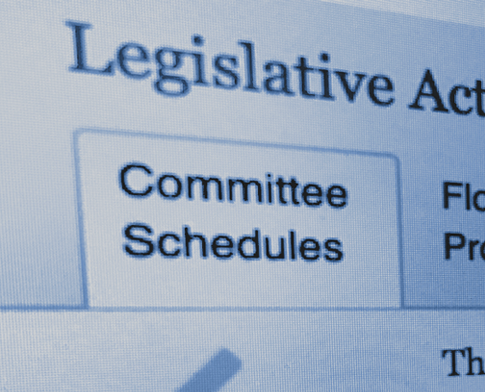Health Update (July 16)
With the Congress back in session after their Fourth of July recess, there was a lot of movement in the healthcare world this week. The House Energy & Commerce Subcommittee on Health held a mark-up on numerous bills, most notably on surprise medical billing and Medicaid funding in the U.S. Territories. The House Oversight Committee held a hearing on the Affordable Care Act. The healthcare headlines went beyond Capitol Hill as well, with the Trump administration issuing an executive order aiming at reducing kidney disease amongst Americans and pulling back a proposal to eliminate rebates from government drug plans.
Surprise Billing Legislation Advances
The House Energy & Commerce Committee Subcommittee on Health held a mark-up on Thursday, during which they approved several bills. The mark-up saw mostly unanimous bipartisan consent as committee members from both sides of the aisle commended one another for the work they put in to move all of the pieces of legislation forward. Health Subcommittee Chairwoman Anna Eshoo (D-CA) and Ranking Member Michael Burgess (R-TX) emphasized the bipartisan agreement on surprise medical bills, prescription drug prices, and the need to provide funding to avert the Medicaid cliff the U.S. Territories are facing. However, there were disagreements during the mark-ups of H.R. 3631, which provided additional funding for the Medicaid programs in the U.S. Territories, and H.R. 3630, the “No Surprises Act.” In regard to the territory funding, Committee Republicans, led by Ranking Member Burgess and Rep. Gus Bilirakis (R-FL) noted that they were concerned that the federal government was providing this funding notwithstanding the recent fraudulent activity and arrests made in Puerto Rico and suggested they may want to reconsider this funding. Committee Democrats fought back noting that Medicaid recipients are in great need of care and that they can’t punish them because of the actions of others. This will likely be a point of contention when the bill reaches the full Committee next week. The debate over the surprise billing legislation also highlighted divisions on the Committee, as there was fierce disagreement among committee members on how to settle payment fights. Some committee members, led by Rep. Raul Ruiz (D-CA) have instead pushed for settling payment disputes by giving an option for independent arbitration. Chairman Frank Pallone (D-N.J.) said the benchmark approach he championed with the panel’s top Republican, Rep. Greg Walden (R-OR), creates a “predictable, transparent” way for resolving payment fights. He pointed to tweaks that committee leaders made from the discussion draft meant to address provider concerns. Rep. Larry Bucshon (R-IN), a physician, argued that without an option for an independent mediator to resolve disputes, insurers will drop physicians from their plans. Rep. G. K. Butterfield (D-N.C.) said he’d heard concerns from providers in his district over the impact it could have on rural hospitals. Pallone and Walden said they were both open to discussions about changing the bill. But Pallone noted a lot of work has already gone into it and the Health Subcommittee advanced the bill on a voice vote. [1] To read a more detailed summary of this hearing, click here.
House Oversight Hearing on ACA
With recent debate on the constitutionality of the ACA in the headlines, the House Oversight Committee held a hearing on Wednesday, July 10, entitled “The Trump Administration’s Attack on the ACA: Reversal in Court Case Threatens Health Care for Millions of Americans.” The hearing on the ACA quickly became contentious and escalated throughout the duration of the hearing. Committee Democrats, led by Chairman Elijah Cummings (D-MD), were quick to point out the benefits of the ACA and the stories of millions of Americans that have benefited from its passage. Committee Republicans, led by Ranking Member Jim Jordan (R-OH), fought back adamantly with stories of their own constituents that have seen increased costs and premiums and have failed to see any benefits of the ACA. The entire hearing was tense throughout, and Chairman Cummings had to call the committee to order numerous times. Rep. Roy had his voice heard frequently throughout the hearing, as his Republican colleagues often yielded their time to him to finish any lasting arguments. The only issue which the committee could find agreement was pre-existing conditions. To read a more detailed summary of this hearing, click here.
Drug Pricing Hits
A tough time for drug pricing this week as a federal judge struck down a Trump administration rule that would have required drugmakers to include products’ list prices in TV advertisements. District Judge Amit Mehta ruled HHS does not have the authority to compel manufacturers to disclose list prices. The Trump administration finalized the rule in May, with HHS Secretary Alex Azar calling it “the single most significant step any administration has taken” to make drug prices more transparent. [2] The White House killed the proposal to eliminate rebates from government drug plans on Wednesday (July 10) following the federal judge’s decision — replacing those rebates to pharmacy benefit managers with direct discounts to consumers. The White House’s withdrawal of the rebate rule, which would have hurt industry middlemen known as pharmacy benefit managers, could put it at odds with the pharmaceutical industry, a major contributor to Republicans, ahead of the 2020 elections.Trump made the call to abandon the rebate proposal after an Oval Office meeting on Wednesday that included Azar and Joe Grogan, the White House Domestic Policy Council Director. Concerns about 2020 premium hikes and doubts about the rule’s true impact on drug costs weighted the discussion. White House skeptics had expressed doubts the policy could live up to the administration’s promises. [3]
Trump Administration Executive Order on Kidney Disease
The Trump administration unveiled an executive order this week along with five new payment models aimed at a 25 percent reduction in the number of Americans who develop end-stage renal disease by 2030. The administration will launch a nationwide kidney disease awareness campaign as part of efforts to reduce the more than $100 billion the federal government spends annually treating the ailment. It will also seek to expand patient choice and access to kidney transplants by updating outdated regulations, Joe Grogan, the White House Domestic Policy Council director, said on a call with reporters this morning. About 37 million Americans have chronic kidney disease, and more than 726,000 have end-stage renal disease requiring grueling dialysis treatments or a kidney transplant, HHS says. The goal by 2025 is to have 80 percent of new end-stage renal failure patients get a kidney transplant or receive dialysis at home, HHS Secretary Alex Azar said. The new kidney care strategy will try to incentivize dialysis centers to help their patients get transplants; improve the development of wearable and implantable artificial kidneys; bolster support for living donors, such as through compensation for childcare and lost wages, and increase the number of kidneys available for transplant. [4]
White House Healthcare Policy Moving Forward
The White House continued a busy healthcare week as they hosted conservative health policy experts on Friday (July 12) for a listening session touching on ACA alternatives and the administration’s drug pricing agenda. Friday’s session with outside experts is the latest in a series that began after an early April retreat at Camp David, which was convened by acting chief of staff Mick Mulvaney and attended by senior administration officials. The retreat and the resulting listening sessions were intended to jump-start planning for an ACA alternative President Donald Trump is eager to unveil ahead of the 2020 elections, though many Republicans are wary of reopening that debate. The listening session comes shortly after a panel of federal appeals judges on Tuesday (July 9) questioned whether the Affordable Care Act is constitutional. [5]
References
[1] Roubein, Rachel. “House panel OKs surprise billing legislation, but rift remains.” Politico Pro. 11 July 2019. https://subscriber.politicopro.com/article/2019/07/house-panel-oks-surprise-billing-legislation-but-rift-remains-1586878
[2] Owermohle, Sarah. “Judge strikes down rule requiring drug prices in ads.” Politico Pro. 8 July 2019. https://subscriber.politicopro.com/article/2019/07/judge-strikes-down-rule-requiring-drug-prices-in-ads-3537784
[3] Owermohle, Sarah. “Trump leaning on Sanders-style ideas to save his drug plan.” Politico Pro. 11 July 2019. https://subscriber.politicopro.com/article/2019/07/white-house-kills-drug-rebate-rule-1583647
[4] Cancryn, Adam. “House surprise billing effort hits bipartisan resistance.” Politico Pro. 10 July 2019. https://subscriber.politicopro.com/article/2019/07/house-surprise-billing-effort-hits-bipartisan-resistance-1581840
[5] Diamond, Dan. “White House summons experts for health policy brainstorming.” Politico Pro. 10 July 2019. https://subscriber.politicopro.com/article/2019/07/white-house-summons-experts-for-health-policy-brainstorming-3555395
HOUSE.GOV
The Week Ahead
For the main events of the next week and more, go straight to the key events on the house.gov website.
SENATE.GOV
The Week Ahead
For the main events of the next week and more, go straight to the key events on the senate.gov website.


